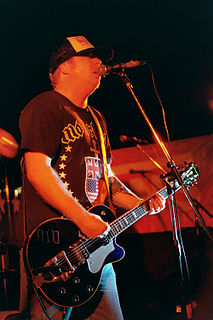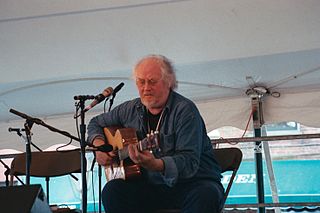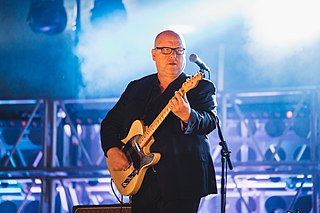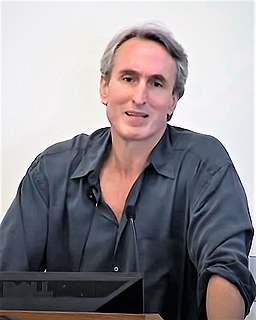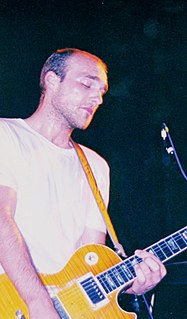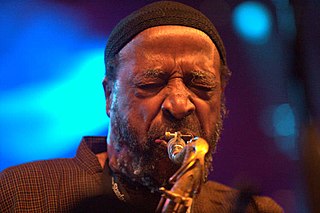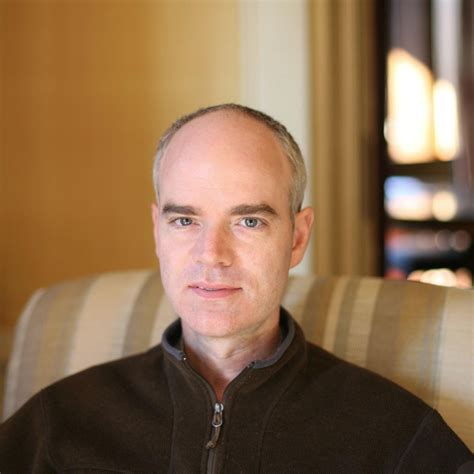A Quote by Cat Stevens
I've studied various schools of thought ... I acknowledge that some Muslims consider music prohibited, but I've found a lot of evidence from the life of the Prophet to show that he allowed certainly, but even encouraged, music at certain times ...
Related Quotes
I was interested in a whole range of music that I used to play, popular music -- particularly American music -- that I heard a lot of when I was a teenager," "I think at a certain point it dawned on me that myself playing this music wasn't very convincing. It was more convincing when we played music that came from our own stock of tradition. ... I certainly feel a lot more comfortable playing so-called Celtic music.
Muslims consider the honor of the Prophet Muhammad to be dearer to them than that of their parents or even themselves. To defend it is considered to be an obligation upon them. The strict punishment if found guilty of this crime under sharia, the Islamic law, is capital punishment implementable by an Islamic State. This is because the Messenger Muhammad said, ‘Whoever insults a Prophet, kill him.’
What sets science and the law apart from religion is that nothing is expected to be taken on faith. We're encouraged to ask whether the evidence actually supports what we're being told - or what we grew up believing - and we're allowed to ask whether we're hearing all the evidence or just some small prejudicial part of it. If our beliefs aren't supported by the evidence, then we're encouraged to alter our beliefs.
A lot of times you can write a scene with a specific song in mind, and then you lay it over the image, and it kills it. I can never figure out why certain music works. Some music you listen to and say, "Man, that would be great for a movie." But when you try it, it's horrible, because the music itself is cinematic. The weight of it kills the image.
I read a lot - surveys of vernacular music. A lot of it is the Harry Smith Anthology of American Folk Music, which I've loved since I was in high school. They had it at the library and I always thought that was interesting, even when I was into punk and stuff. Just the history of storytelling and the amount of melancholy a lot of old music has.
A song playing comprises a very specific and vivid set of memory cues. Because the multiple-trace memory models assume that context is encoded along with memory traces, the music that you have listened to at various times of your life is cross-coded with the events of those times. That is, the music is linked to events of the time, and those events are linked to the music.
You might be able to get a certain sound, and in the studio you certainly look at things under a microscope a lot more. You might hear more warmth out of a thicker string gauge. But in the practical world, like with us, we're playing An Evening With... so it's three hours of music, and our music is pretty challenging as far as the technical aspect. And I found after awhile that I was killing myself.
Each culture has some knowledge. That's why I studied with Saj Dev, an Indian flute player. That's why I studied Stockhausen's music. The pygmies' music of the rain forest is very rich music. So the knowledge is out there. And I also believe one should seek knowledge from the cradle to the grave. With that kind of inquisitiveness, one discovers things that were unknown before.
You know that that thing is going to be as crisp and as clean, as many times as you want to watch it. So, I knew that the film was going to be watched multiple times, a lot like with music videos. Music videos aren't designed to be watched once. They're designed to be watched hundreds of times. On a certain level, the film was dream logic-ed, like a music video

